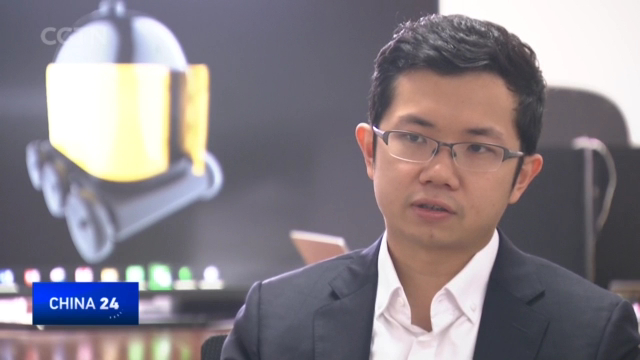
21:01, 09-Aug-2019
Start-up Business: Chinese mainland attractive for young Hong Kong entrepreneurs
Updated
22:44, 09-Aug-2019

For some young people from Hong Kong, starting up their own business on the mainland is a good choice. CGTN reporter Su Yuting explains.
Running a robotics company for delivery services.
An increasing number of young people from Hong Kong are heading north to the Chinese mainland to launch start-ups with innovative technology.
MET LI, CO-FOUNDER ZHEN ROBOTICS "My name is Met Li. I am the co-founder of Zhen Robotics. I moved to Beijing three years ago. Before that, I stayed in Shenzhen for four years. Why did I start my company here? Because I think we have huge opportunities in the Chinese mainland."
Today, Li's team has more than 50 employees, consisting of elite young people both from Hong Kong and the mainland. And they maintain very close cooperation.
AUGEST ZHANG, R&D MANAGER ZHEN ROBOTICS "There is no big difference between the two, cooperating with Hong Kong people or with Chinese mainlanders like me. The most significant thing is that we have to trust each other. Met Li always said 'you have my back'. We support each other and try to do our best. He will do his best to communicate with clients and do the marketing, and we will do our best to improve our technologies and to improve our products."
For the young entrepreneurs from Hong Kong, there are many policies that can benefit them doing start-ups in Beijing.
MET LI, CO-FOUNDER ZHEN ROBOTICS "We have the R&D reduction. We have free office and working areas, like the Beijing-Hong Kong Start-up Center. We have the residence card, it's very important for us as it looks like the ID card and serves the similar function. And the Greater Bay Area, it has tax reduction on the salary side, that's very promising as well."
SU YUTING BEIJING "With the Belt and Road Initiative and national plans such as the Guangdong-Hong Kong-Macao Greater Bay Area, Hong Kong has been given many new functions and a higher position. Special attention and preferential policies have been provided for young entrepreneurs from Hong Kong to do business in the Chinese mainland to create a better future for them. Su Yuting, CGTN, Beijing."
SITEMAP
Copyright © 2018 CGTN. Beijing ICP prepared NO.16065310-3
Copyright © 2018 CGTN. Beijing ICP prepared NO.16065310-3